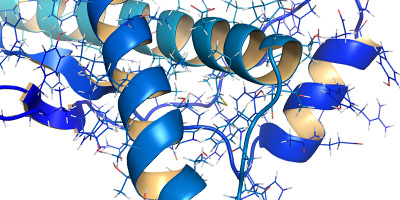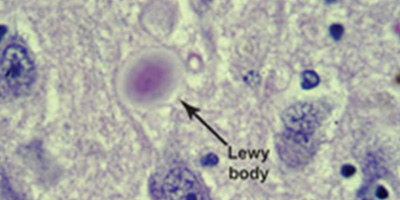
Double Your Love. Double Your Impact.
Double Your Love. Double Your Impact.
Help provide 2x the care and support for millions affected by Alzheimer’s and advance research to bring us closer to a cure. Make a gift during our Double the Love 2x Match now.
Donate NowMixed Dementia
Mixed dementia is a condition in which brain changes of more than one cause of dementia occur simultaneously.
About mixed dementia
 In the most common form of mixed dementia, the abnormal protein deposits associated with Alzheimer's disease coexist with blood vessel problems linked to vascular dementia. Alzheimer's brain changes also often coexist with Lewy bodies. In some cases, a person may have brain changes linked to all three conditions — Alzheimer's disease, vascular dementia and dementia with Lewy bodies.
In the most common form of mixed dementia, the abnormal protein deposits associated with Alzheimer's disease coexist with blood vessel problems linked to vascular dementia. Alzheimer's brain changes also often coexist with Lewy bodies. In some cases, a person may have brain changes linked to all three conditions — Alzheimer's disease, vascular dementia and dementia with Lewy bodies.Researchers don't know exactly how many older adults currently diagnosed with a specific type of dementia actually have mixed dementia, but autopsies indicate that the condition may be significantly more common than previously realized.
Autopsy studies play a key role in shedding light on mixed dementia because scientists can't yet measure most dementia-related brain changes in living individuals. In the most informative studies, researchers correlate each participant's cognitive health and any diagnosed problems during life with analysis of the brain after death.
Learn more: Vascular Dementia, Dementia with Lewy Bodies, What Is Alzheimer's?
NIA-funded Memory and Aging Project reveals mixed dementia common
Data from the first 141 volunteers in this research study show that more than 50 percent of those whose brains met pathological criteria for Alzheimer's had pathologic evidence of one or more coexisting dementias.
This study is conducted by the Rush Alzheimer's Disease Center and the Rush Institute for Healthy Aging in Chicago and funded by the National Institute on Aging (NIA).
Symptoms
Mixed dementia symptoms may vary, depending on the types of brain changes involved and the brain regions affected. In many cases, symptoms may be similar to or even indistinguishable from those of Alzheimer's or another type of dementia. In other cases, a person's symptoms may suggest that more than one type of dementia is present. Researchers expect to gain a greater understanding of mixed dementia symptoms as long-term studies continue to shed light on the relationship between cognitive function and underlying brain abnormalities.
Learn more: Symptoms of Alzheimer's Disease, Key Types of Dementia.
Diagnosis
Most individuals whose autopsies show they had mixed dementia were diagnosed with one specific type of dementia during life, most commonly Alzheimer’s disease. For example, in the NIA study involving long-term cognitive assessments followed by brain autopsy, 94% of participants who were diagnosed with dementia were diagnosed with Alzheimer’s. Yet, the autopsies of those diagnosed with Alzheimer’s showed that 54% had coexisting pathology in addition to hallmark Alzheimer’s brain changes. The most common coexisting abnormality was previously undetected blood clots or other evidence of vascular disease. Lewy bodies were the second most common coexisting brain change.
Causes and risks
Although mixed dementia is infrequently diagnosed during life, many researchers believe it deserves more attention because the combination of two or more types of dementia-related brain changes may have a greater impact on the brain than one type alone. Evidence suggests that the presence of more than one type of dementia-related change may increase the chances a person will develop symptoms.
Treatment and outcomes
Because most people with mixed dementia are diagnosed with a single type of dementia, physicians often base their prescribing decisions on the type of dementia that's been diagnosed. No drugs are specifically approved by the U.S. Food and Drug Administration (FDA) to treat mixed dementia. Physicians who think that Alzheimer's disease is among the conditions contributing to a person's dementia may consider prescribing the drugs that are FDA-approved for Alzheimer's.
Many researchers are convinced that a more in-depth understanding of mixed dementia, coupled with recognition that vascular changes are the most common coexisting brain change, may create an opportunity to reduce the number of people who develop dementia. Controlling overall risk factors for diseases of the heart and blood vessels may also protect the brain from vascular changes.
Learn more: Brain Health, Prevention
Help is available
If you or a loved one has been diagnosed with Alzheimer's or another dementia, you are not alone. The Alzheimer's Association is the trusted resource for reliable information, education, referral and support to millions of people affected by the disease.
- Call our 24/7 Helpline: 800.272.3900.
- Locate a chapter in your community.
- Join our online community.
- Use our Virtual Library.
Related Pages

The Alzheimer’s Association is in your community.
Find Your Local Chapter
Learn how Alzheimer’s disease affects the brain.
Take the Brain Tour




